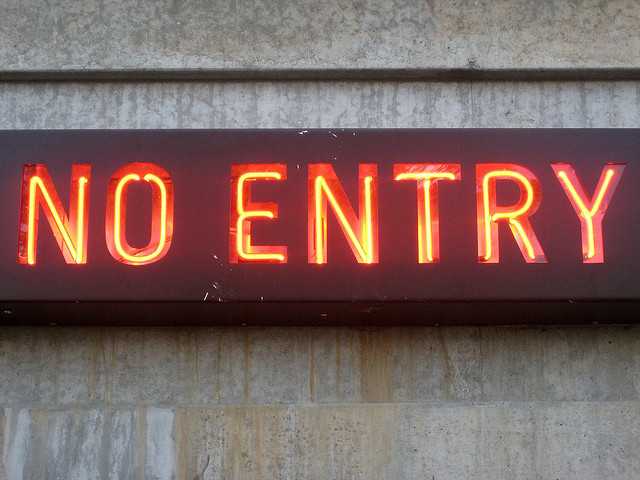There are only three ways to spend time: thoughts, conversations and actions. Regardless of what your business is, everything will revolve around how these three things you organize.
Rehearse these techniques and learn to manage your time properly:

1. Make schedule and list of all things to be done
Carry a schedule and a list of all thoughts, conversations and activities that you have scheduled for that week. This will help you understand the urgency of a situation, and you will realize how much you are actually able to do during the day and how much time that activity consume. You’ll see how much time you actually spend thinking about unproductive things in meaningless conversations or actions, and how many on productive work and thoughts. When you make this schedule for the first time you probably won’t do everything that you planned but with time you will get more and more precise plan.

2. Plan exact time for every activity
Any action or chat that is important for your success should have a certain amount of time (period) in which you plan to finish it. One “today to do” lists will get longer and longer until the moment when you realize that there is absolutely no chance to finish it all. In such cases, the appointment book works wonders. Schedule a meeting with yourself and make the slots for priority thoughts, conversations and actions. Mark their beginning and their end. Be disciplined enough to practice all this without pulling back. Plan to spend at least 50% of your time on thinking, activities and discussions that deliver the most concrete results.

3. Determine what is urgent
Most of us are overwhelmed by the e-mails, calls, and requirements that are not urgent and we should not pay attention to them when we have some others more urgent things. We do not need all information immediately. Get the new information when you need them, rather than continuously. If the project is complicated and requires more people, talk about it instead of chatting. Do not constantly check e-mails and reply to them immediately. Create a signature in an email in which you emphasize that you do not have time to answer everything and to call you if it is urgent. The same applies to meetings. Do you have to be on it? If you do not have to, do not go.

4. Plan your unplanned interruptions
Make time for breaks / interruptions. Plan a possibility to be dragged away from what you are doing. If you do not understand what this means, consider the possibility that you’ll want to check out your favorite episode of TV series (30 minutes), or to drink a cup of coffee (20 minutes),or talk to your best friend (10 minutes). And when this all adds up it will take approximately an hour (60 minutes) of interruption of your planned time. But if you have anticipated and planned this out, then you will not disturb the foreseen schedule, instead everything will already be in the existing one.

5. Build and practice willpower
Willpower is the key to efficiency – if you work at it, you will improve it. A psychologist at the University of Florida found that people can exercise willpower, i.e. force to focus during important tasks. Practice willpower by promising yourself not to eat junk food a week or you will not go to bed after midnight. Make the hardest decisions at the peak of your willpower – for most people that time is morning. If you brake promise made to yourself don’t let everything go immediately. Just start over the next day again. That’s why it is called practicing. No matter how hard it seems sometimes, don’t give up.

6. Think about results before beginning and after completing a task
Please take five minutes before each call or task that is very important to you, stay focused and think about what kind of results you want to achieve. This will help you to create a picture of how success looks like before you start. Also, practice to use the slowdown time. Take five minutes after each call, and the activity / process / actions to determine whether you have achieved the desired result. If not, what is missing? How to insert something that was lacking in the next project? Repeating this process you will learn much about yourself, your mistakes and your advantages. This will make you wiser and you will know exactly how to handle next similar task.

7. Prepare yourself for upcoming day
While it is important to have a good night’s sleep, it is best to prepare for the next day before going to bed. Brain scans of people who sleep shows that our brains are working on solving problems while sleeping and thinking about the next day before bedtime will help you solve problem during sleep. In the morning you will be surprised how clear solution to your problem looks. But avoid too stressful projects before bed, because they could trouble you too much and make you restless to sleep. Also avoid light from screens of phone, television or computer because their light postpones going to bed.

8. Don’t answer every call and every mail instantly
Train yourself not to answer the phone just because it rings or not to look at e-mails just because they are coming one after the other. Switch off with the application through which you have instant communication with someone. Don’t give your whole attention to the people the same moment they request it, unless it is crucial for your business immediately respond to someone. Instead, plan a time in which you will respond to all e-mails and calls. Be sure to explain other people the reason for doing it and they will understand your need to distance yourself while working.

9. “Do Not Disturb” sign
Put a “Do Not Disturb” sign on the door / Skype / phone when you absolutely need to concentrate on the job. Turn of distraction such as Facebook, Twitter, Skype and other social networks, unless you need to not use them as a means of communication with business partners. Even if you convince yourself that it does not take a lot of time from work, it does. You can do experiment if you don’t believe us. Use stopwatch and measure time spent on these distractions and sum them at the end of the day. Few minutes every half hour could sum up to whole hour or even more.

10. Brake complicated task into small ones and make pauses
Complicated tasks should be approached differently than easy ones. You will finish them better and faster if you break them into small ones and make small breaks between them. Researchers found that people who complete more complicated tasks do it much more efficiently when they pause for a minute or two. The brain unconsciously process information during operations that are not related to the task, and then continue to work better. Even a break of two minutes has the effect. This is not about multitasking – always evaluate the problem from afar while doing something else. And something else should be completely different from what you are doing.



